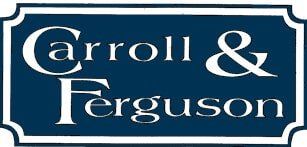WHAT DOES CHAPTER 7 (OR 13, 11, ETC.) MEAN?
- By Admin
- •
- 13 Sep, 2010
- •
When I sit down with a potential new bankruptcy client, one of the first issues that we need to address is what chapter of the code to file under. Because of news reports and maybe internet research most consumers are aware of Chapter 11 and Chapter 7. They really do not understand what the different chapters mean or understand the impact on them of the different chapters.
First off, the ‘Chapter’ refers to parts of the Bankruptcy Code. The Bankruptcy Code is part of the United States Code (Federal Statues). The total United States Code runs to hundreds of volumes and takes ups yards of book shelf space. Almost all parts of the U.S. Code dealing with bankruptcy matters are in Title 11. Title 11 of the U.S. Code is further divided into ‘chapters[1]’ that deal with different bankruptcy subjects. There are general and administrative provisions that apply to all cases (Chapter 1, 3 and 5). Then there are chapters dealing with specific types of cases depending on the debtors’ situation. Chapter 7 is a liquidation case and can be business or individual. Chapter 11 is business reorganization; Chapter 13 is an individual reorganization. Chapter 7, 11 and 13 are the ones that most people hear about and the vast majority of cases are filed under one of these three chapters of the code. There are some other chapters that come up once in a while. In Western Maryland we sometimes see a Chapter 12 case, which is a reorganization of a family farm or fisherman with regular annual income. There is also a chapter for local government bankruptcy in Chapter 9.
What is important to keep in mind, is that each chapter has slightly different qualification provisions. Each chapter may also have different treatment of creditors. For instance, liens may be treated differently. Last week I blogged about stripping a 2nd mortgage liens in Chapter 13. Those provisions are not available in Chapter 7. Broader lien stripping powers exist under Chapter 12, but the jurisdictional requirements make is difficult to take advantage of them. See 11 U.S.C. §101(18) – (21A).
This discussion is by no means complete, but I hope I have given you a feel for some of the terms that are thrown around and maybe made them a bit more understandable.
Dan Carroll
Carroll & Ferguson
9438 Woodsboro Pike
Walkersville, MD 21793
301-845-0470

CONTACT INFORMATION
Phone: 301-845-0470
Address: 9438 Woodsboro Pike, Walkersville, MD 21793
Hours of Operation:
| Mon-Fri | 09:00 AM - 05:00 PM |
| Sat-Sun | Closed |
| Other hours by appointment, please call. | |



OUR LOCATION
BROWSE OUR WEBSITE
CONTACT INFORMATION
Phone: 301-845-0470
Address: 9438 Woodsboro Pike, Walkersville, MD 21793
Hours of Operation:
| Mon-Fri | 09:00 AM - 05:00 PM |
| Sat-Sun | Closed |
| Other hours by appointment, please call. | |



